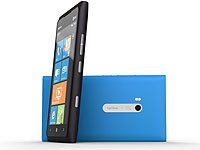Rare earth mining and its associated trade bankrolls a lot of the violence that’s gripping the Democratic Republic of the Congo (DRC). And given the convoluted supply chains that have become a hallmark of today’s global economy, these “conflict minerals” can wind up in your electronics.
That’s a problem.
Nokia has taken an official stance on conflict minerals. In short, it will do everything in its power to make sure that those metals never end up in any of its products. This new policy emphasizes ‘traceability’ and effectively puts its suppliers and sub-suppliers on notice.
Here’s the relevant section from Nokia’s Policy against Illegal Trade of Natural Resources (PDF), which outlines the lengths — or in this case ‘depths’ — the company will go to root out conflict minerals.
Nokia policy requires that our suppliers who manufacture components, parts, or products containing tin, tantalum, tungsten, and/or gold must commit to sourcing those materials from environmentally and socially responsible sources only. Materials, which either directly or indirectly contribute to conflict, are unacceptable. Suppliers shall define, implement and communicate to sub-suppliers their own policy, outlining their commitment to responsible sourcing of these materials, legal compliance and measures for implementation. Suppliers shall work with sub-suppliers to ensure traceability of these materials at least to smelter level, e.g. by using the EICC-GeSI Minerals Reporting Template. Nokia reserves the right to request further evidence of the chain down to mine level when necessary [emphasis mine]. Once mechanisms are available, suppliers shall ensure that purchased metals originate from smelters validated as being conflict mineral free. Traceability data shall be maintained and recorded for 5 years and provided to Nokia upon request.
With this move, Nokia joins Intel and Apple in helping to keep our gadgets free of conflict minerals. Not bad company to be in.
Image credit: Nokia


Leave a Reply